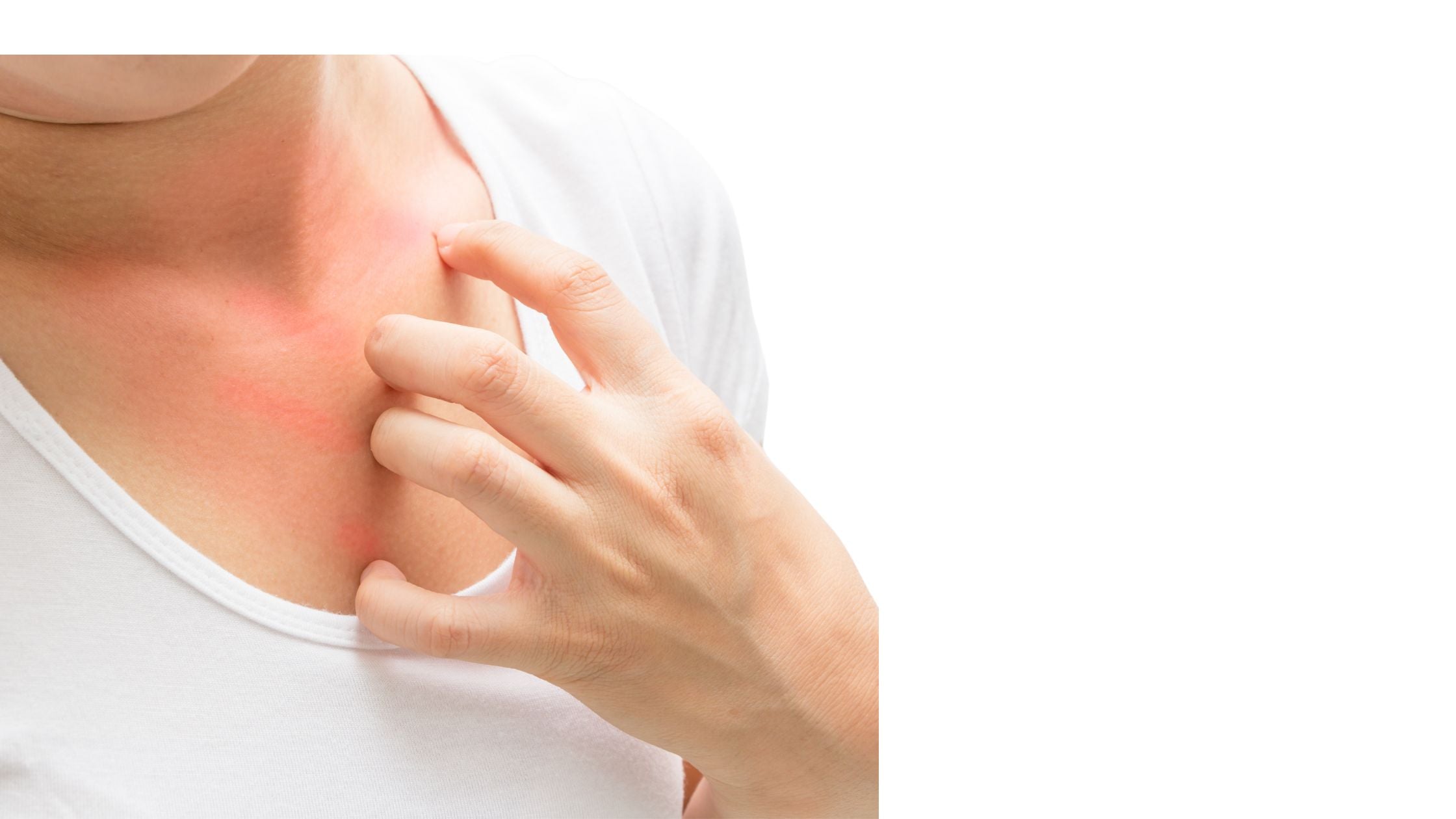
6 Signs of Sensitive Skin
Sensitive skin can be a real challenge to deal with, and if you're one of the many people who have it, you know that it can feel like a never-ending battle to maintain a happy complexion. But what exactly is sensitive skin, and how do you know if you have it? In this article, we'll explore the signs of sensitive skin, the causes behind it, and how to care for this delicate skin type while keeping it looking and feeling its best.
Understanding Sensitive Skin:
Sensitive skin is more than just a tendency to experience irritation. It's a skin type characterized by heightened reactivity to environmental factors and skin care products. Individuals with sensitive skin often experience discomfort, redness, itching, and even burning sensations more easily than those with other skin types.
Signs of Sensitive Skin:
- **Redness:** One of the most common signs of sensitive skin is redness, especially on the cheeks, forehead, and chin. This redness may be caused by dilated blood vessels close to the skin's surface.
- **Irritation and Itching:** Sensitive skin is prone to irritation and itching, which can be triggered by various factors such as harsh weather conditions, allergens, or certain skincare products. It's essential to identify and avoid these triggers to maintain skin comfort.
- **Burning Sensation:** Sensitive skin may feel a burning or stinging sensation when exposed to certain skincare products or environmental factors, including extreme temperatures, wind, or UV rays.
- **Dryness:** Sensitive skin tends to be on the drier side. It lacks the natural protective barrier that helps retain moisture, making it more susceptible to dehydration and flakiness.
- **Breakouts:** Contrary to the belief that sensitive skin is always dry, some individuals with sensitive skin may have oily skin and experience breakouts, especially if they use products that clog pores or contain ingredients that skin is sensitive to.
- **Flushing:** Sensitive skin often flushes easily, meaning it becomes excessively red due to emotional triggers, spicy foods, or sudden temperature changes.
Causes of Sensitive Skin:
Sensitive skin can have multiple causes, including genetics, environmental factors, and lifestyle choices. Here are a few common culprits:
- **Genetics:** A family history of sensitive skin can increase the likelihood of having it. If your parents or siblings have sensitive skin, you may be more likely to it as well.
- **Environmental Factors:** Exposure to harsh weather conditions, pollution, and UV radiation can weaken the skin's natural barrier, making it more sensitive.
- **Skincare Products:** Using products with harsh chemicals, fragrances, or preservatives can irritate sensitive skin.
- **Diet:** Consuming certain foods and drinks, like spicy dishes or alcohol, can trigger flushing and redness in sensitive skin.
Sensitive Skin Conditions:
Sensitive skin can appear in various ways and conditions with variety of symptoms. Some common sensitive skin conditions include:
-
Contact Dermatitis - Two types:
- Irritant Contact Dermatitis: Direct contact with an irritating substance, such as harsh chemicals, detergents, or certain fabrics is the cause of this type of contact dermatitis.
- Allergic Contact Dermatitis: Allergic reaction to a specific substance, such as certain fragrances, preservatives, or metals.
-
Rosacea:
- Facial redness, visible blood vessels, and in some cases, small, red bumps, accompany this chronic skin condition.
-
Eczema:
- A group of chronic skin conditions with several forms that cause inflammation, redness, and itching. Blisters and oozing lesions appear in severe cases. Atopic dermatitis is a common form of eczema.
-
Psoriasis:
- A chronic autoimmune condition that results in the rapid buildup of skin cells, leading to raised patches with whitish buildup of scaling, redness, and inflammation.
-
Urticaria (Hives):
- Raised, itchy welts or bumps on the skin that are often caused by an allergic reaction or other triggers.
-
Prickly Heat (Miliaria):
- Rashes that may be painful which occurs when sweat becomes trapped in the sweat ducts, leading to red, itchy rashes.
-
Seborrheic Dermatitis:
- Manifests with redness, scaly patches, and dandruff. Often affects the scalp but can also occur on other oily areas of the body.
-
Perioral Dermatitis:
- Small, red papules and pustules that usually appear around the mouth, eyes, and sometimes the forehead. The exact cause is unknown but may be related to the use of topical steroids, or ingredients in toothpaste.
-
Vasculitis:
- Inflammation of blood vessels in the skin, causing red or purple areas, bruise-like patches, or small bumps.
-
Xerosis (Dry Skin):
- Very dry, flaky skin that may be itchy and sensitive distinguish this type of sensitive skin. Very dry skin may feel rough to the touch or even peeling.
How to Care for Sensitive Skin
Caring for sensitive skin requires a gentle and consistent approach. Here are some tips to help you maintain a happy, healthy complexion:
- **Patch Test:** Always patch test new skincare products to ensure they won't cause irritation or an allergic reaction.
- **Choose the Right Products:** Look for products labeled as "hypoallergenic," "fragrance-free," and formulated "for sensitive skin." These are likely to minimize and trigger adverse reactions.
- **Simplify Your Routine:** Fewer products mean fewer potential irritants. Stick to a basic skincare routine with a gentle fragrance free cleanser, moisturizer, and sunscreen.
- **Stay Hydrated:** Drink plenty of water to help combat dryness and maintain skin hydration.
- **Protect Your Skin:** Wear sunscreen daily to shield your skin from harmful UV rays, and use protective clothing and accessories in extreme weather conditions.
- **Consult a Dermatologist:** If you're struggling with sensitive skin, it's a good idea to consult a dermatologist for personalized advice and potential treatments.
Sensitive skin can be a challenge, but with the right care and attention, you can keep it looking and feeling its best. By understanding the signs of sensitive skin and the factors that can exacerbate it, you can make informed choices about skincare and lifestyle to help keep your complexion calm and comfortable.
How to Choose Products for Sensitive Skin:
Special attention and consideration are needed towards choosing sensitive skin personal care products. Especially because of potential irritants and allergens that may be in chemicals of the products. Follow the steps included here for choosing suitable products for sensitive skin:
- Read Labels:
- Look for products labeled "hypoallergenic," "fragrance-free," and "dermatologist-tested." These terms suggest that the product is less likely to cause irritation.
- Avoid products with a long list of ingredients, especially those with harsh chemicals, alcohol, many botanicals (plant extracts, essential oils) and fragrances.
- Patch Test:
- Before using a new product on your face or body, perform a patch test on a small area of skin to see how it reacts. This helps you identify any potential sensitivity or allergic reactions.
- Avoid Common Irritants:
- Stay away from products that contain known skin irritants such as alcohol, fragrances, parabens, sulfates, and harsh chemicals.
- Choose Gentle Cleansers:
- Use a mild, fragrance-free cleanser that is specifically formulated for sensitive skin. Avoid harsh soaps and cleansers with sodium lauryl sulphate (SLS) or plant ingredients. Many botanicals, although natural, may bee soaked in preservatives and not be suited for everyone.
- Moisturize Regularly:
- Keep your skin well-hydrated with a gentle, hypoallergenic moisturizer. Look for ingredients like sodium hyaluronate, glycerin, and shea butter.
- Sunscreen is Essential:
- Protect your skin from the sun with a broad-spectrum sunscreen that has an SPF of 30. Choose a formula designed for sensitive skin, and reapply as needed. The sunscreens with zinc oxide are gentle, and effective for sensitive skin.
- Minimize Exfoliation:
- Limit the use of exfoliating products, as they can be abrasive and may cause irritation. If you do exfoliate, choose a gentle exfoliant and use it sparingly.
- Be Cautious with Makeup:
- Choose makeup products labeled as suitable for sensitive skin. Look for mineral-based makeup without added fragrances.
- Consult a Dermatologist:
- If you have persistent skin issues, consider consulting a dermatologist. They can provide personalized recommendations based on your skin type and specific sensitivities.
- Consider Allergies:
- Be aware of any known allergies you may have, and avoid products that contain those allergens.
Remember that everyone's skin is unique, so what works for one person may not work for another. Pay attention to your skin's reactions and adjust your routine accordingly. If you're uncertain about a product, consult with a dermatologist for professional advice.



Leave a comment
This site is protected by hCaptcha and the hCaptcha Privacy Policy and Terms of Service apply.